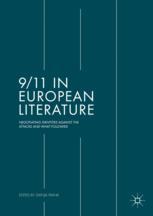

Most ebook files are in PDF format, so you can easily read them using various software such as Foxit Reader or directly on the Google Chrome browser.
Some ebook files are released by publishers in other formats such as .awz, .mobi, .epub, .fb2, etc. You may need to install specific software to read these formats on mobile/PC, such as Calibre.
Please read the tutorial at this link: https://ebookbell.com/faq
We offer FREE conversion to the popular formats you request; however, this may take some time. Therefore, right after payment, please email us, and we will try to provide the service as quickly as possible.
For some exceptional file formats or broken links (if any), please refrain from opening any disputes. Instead, email us first, and we will try to assist within a maximum of 6 hours.
EbookBell Team

4.7
26 reviewsThis volume looks at the representation of 9/11 and the resulting wars in European literature. In the face of inner-European divisions the texts under consideration take the terror attacks as a starting point to negotiate European as well as national identity. While the volume shows that these identity formations are frequently based on the construction of two Others—the US nation and a cultural-ethnic idea of Muslim communities—it also analyses examples which undermine such constructions. This much more self-critical strand in European literature unveils the Eurocentrism of a supposedly general humanistic value system through the use of complex aesthetic strategies. These strategies are in itself characteristic of the European reception as the Anglo-Irish, British, Dutch, Flemish, French, German, Italian, and Polish perspectives collected in this volume perceive of the terror attacks through the lens of continental media and semiotic theory.